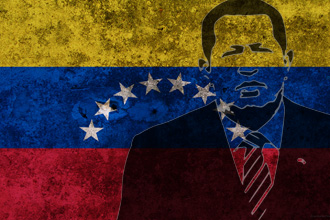Venezuela without Chavez
For 14 years, Hugo Chavez held the presidency of Venezuela through a combination of political control, personality and policy that came to be known as Chavismo. Following his death, the question that looms over the nation is, can Chavismo survive without Chavez?

Future elections “will be the real test as to whether, down deep in its innermost core, Venezuela under the shadow of Chavez after his death is in fact democratic or authoritarian,” says political science professor Eduardo Silva.
“Chavismo as a political movement could, under certain circumstances, survive,” Silva says. “It would require the institutionalization of the PSUV, which would mean the party leadership would have to solve issues related to factionalism in the party by finding ways to conciliate opposing positions, as well as how they handle candidate selection, which Chavez largely handled himself.”
While conceding the party has a challenge in front of it, Silva says a model exists in South America that offers a roadmap for how to navigate the process.
“The historical precedent is in Argentina with Peronism under Juan Peron,” Silva says. “Peronism arose in much the same way as Chavez did, dependent on this very charismatic leader that founded a political party suffering from a number of the same problems. Nevertheless, they managed to institutionalize, and it is the ruling party of the country today.”
Silva says the current election to determine a new president was more or less over when Chavez hand picked his successor prior to his death. So while he believes Chavez' vice president, Nicolas Maduro, will cruise to victory on April 14, Silva says he will be watching in the subsequent elections of 2015 for the parliament and 2018 for the presidency to see what happens if Chavez' party loses, and whether the transfer of power happens peacefully.
“That will be the real test as to whether, down deep in its innermost core, Venezuela under the shadow of Chavez after his death is in fact democratic or authoritarian.”
